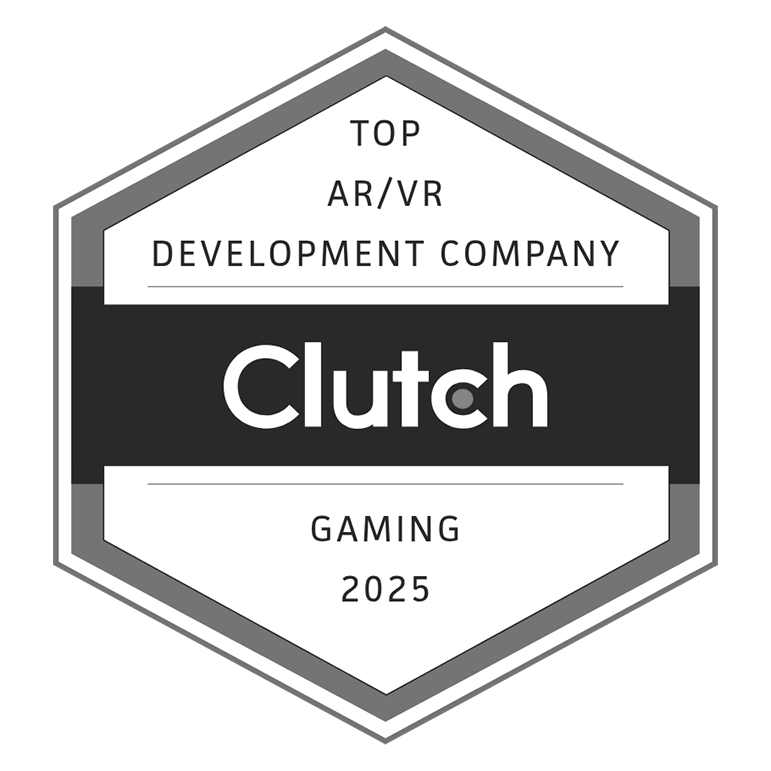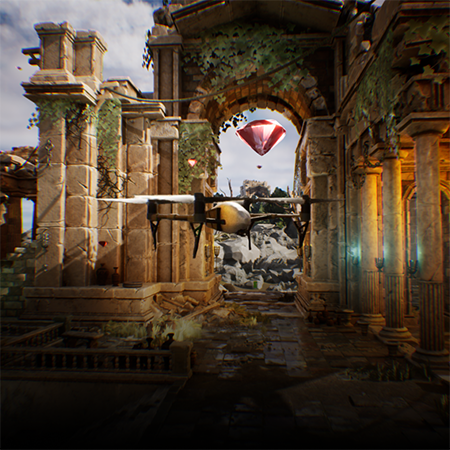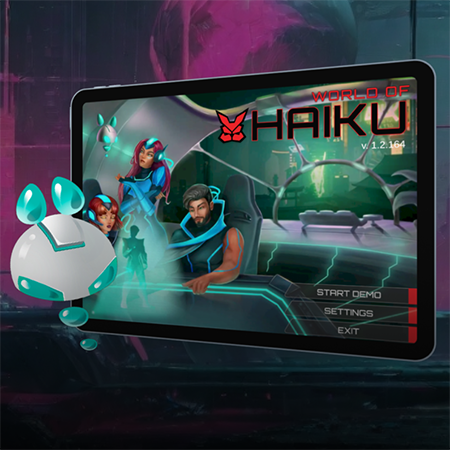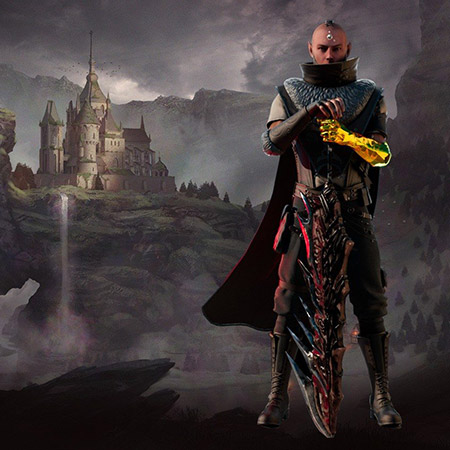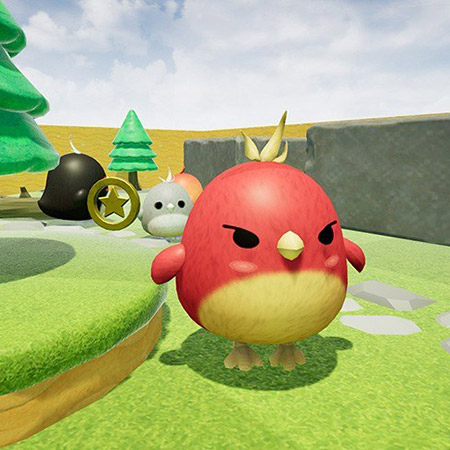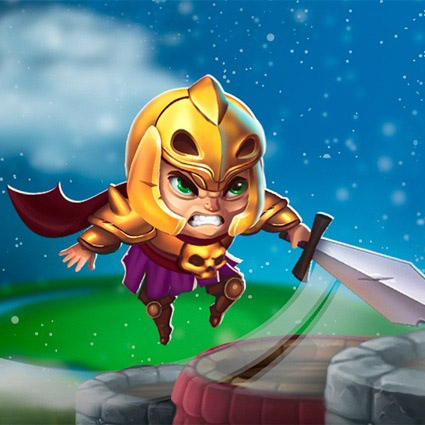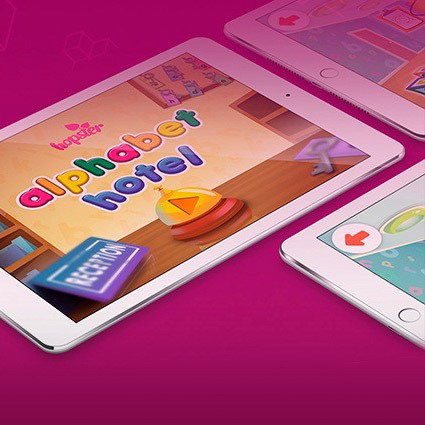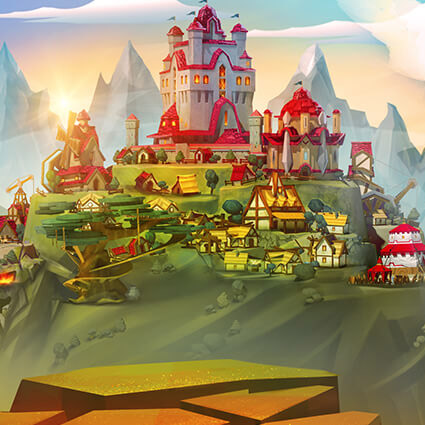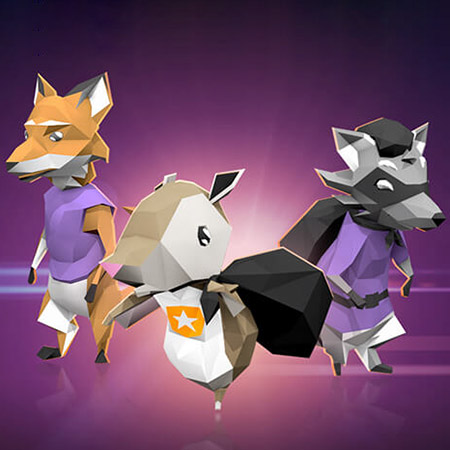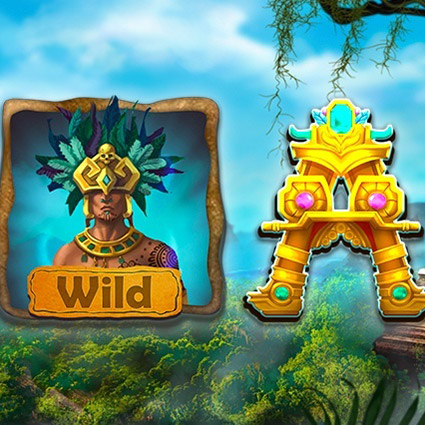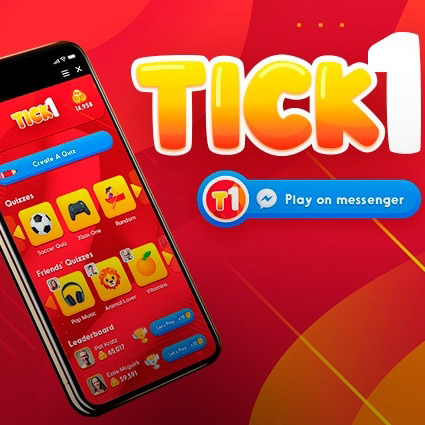The concept of the "metaverse" has emerged as a tantalizing frontier. It promises a blend of boundless virtual worlds, immersive experiences, and interactivity that blurs the lines between reality and digital realms. As tech giants pour investments and developers dive into this expansive realm, a question looms: Is metaverse gaming the next monumental milestone in game development, or will it fade as swiftly as it surged, becoming another industry soap bubble?
Opinions differ. While painting a vivid picture and promising a lot, the metaverse still needs to overcome some significant issues that stop it from reaching its full potential. Still, the market has seen examples of gaming metaverse platforms rising and gaining a huge fan base.
In this article, experts from Game-Ace, a metaverse game development company, dive into the exciting but challenging market of metaverse gaming. Hop in and join us on our exploration!
What is Metaverse Gaming?
You'll encounter a degree of gamification in nearly every facet of the metaverse. It intertwines immersive, interconnected virtual spaces, attracting significant attention, particularly in gaming.
So, what is metaverse in gaming? Within the metaverse, gaming functionality enables users to engage in competitive environments, leading to rapid industry expansion as more users and gaming companies join. Some gamers and experts envision gaming in the metaverse as the future, offering unparalleled immersion and 360-degree perspectives on action-packed experiences.
Immerse yourself in an alternate reality within the metaverse gaming experience. Each user adopts an avatar to interact with others in the 3D network, transcending traditional profiles. Beyond gameplay, users forge connections and socialize within the metaverse, fostering a vibrant community.
Gaming in the metaverse offers diverse adventures and interactions, whether engaging in solo challenges or teaming up with friends. Leading platforms like Roblox, Rec Room, and Minecraft leverage metaverse architecture to enhance gaming experiences.
A blend of cutting-edge technologies fuels the immersive virtual experience of metaverse and gaming, including:
- Artificial intelligence;
- Augmented and virtual reality (AR and VR);
- Blockchain;
- Internet of Things (IoT);
- 3-D reconstruction.
These technologies contribute distinctively to the evolution of metaverse gaming and present diverse job opportunities aligned with current industry demands.
The Overview of Metaverse In Gaming Market
The gaming industry has always been at the forefront of technological innovations, and the metaverse is among the latest conquests. The metaverse refers to a collective virtual space, a convergence of virtually augmented reality, digital twins, and interactive enhancements. This translates to expansive, interconnected digital universes in the gaming market where players can interact, transact, and live alternate lives.
Over the past few years, the buzz around the metaverse has intensified, thanks to tech giants investing billions and a surge in virtual property sales. As for the metaverse in the gaming industry, the prospects look bright, as experts forecast consistent growth over the years from $10bn in 2022 to $163,4bn in 2030. Action and adventure games are predicted to stay in the lead, while other genres will also find their path within the metaverse context. In 2023, the leading countries for gaming in the metaverse are the United States, China, Japan, Germany, and the United Kingdom.
In terms of technology, AR & VR technologies dominate the market, driving the growth of metaverse technology. The surge in demand for AR glasses and VR devices, coupled with the increasing number of VR-supported games, fuels the expansion of this segment.
Additionally, the rising popularity of blockchain, driven by the acceptance of generated funds and the emergence of hidden funds, is expected to further propel the blockchain segment, especially with gaming companies' growing demand for NFTs and the integration of limited NFT systems in the metaverse and gaming.
Regarding type, virtual reality emerges as the dominant component, reflecting the prevalence of VR-based metaverses in the gaming market. The pivotal role of virtual reality in shaping metaverse technology is evident, given its capability to create immersive 3D environments.
Conversely, the AR segment follows closely as the second largest, fueled by the increasing demand for AR glasses and the appeal of partially immersive sensors. The cost-effectiveness of AR compared to VR is also a contributing factor driving the growth of augmented reality.
Age-wise, the above 18 segment commands the largest share, attributed to factors such as the high cost of AR and VR devices and concerns regarding children's exposure to AR and VR environments. Moreover, the prevalence of mature content like gambling and violent games in the metaverse gaming market amplifies the share of this segment. However, there is a burgeoning interest from sports companies to create metaverses tailored for children and young adults, which is expected to fuel growth in the 13-18 age category.
The Main Types of Metaverse Gaming
Within the metaverse and gaming convergence, different genres and forms of gaming have emerged, each offering unique experiences and catering to a diverse audience. Here's a closer look at the main types of metaverse gaming:
Arcade games
Though rooted in retro gaming traditions, these games have been reimagined for the metaverse. They offer simple yet engaging mechanics, now set within expansive digital environments, seamlessly blending with trends like endless runner game development to enhance accessibility and fun.
Action & RPG games
These genres have flourished in the metaverse, offering deep narratives and complex world-building. Players can embark on epic quests, often spanning multiple interconnected virtual universes, with the potential for real-world economic interactions through in-game assets and currency.
Racing games
Metaverse racing transcends traditional tracks and cars, creating a new, exciting environment for this type of entertainment. Imagine races across alien terrains, through wormholes, or even between game universes, with real-world spectators placing bets or purchasing virtual merchandise.
Casino & card games
The virtual gambling world has grown exponentially in the metaverse, adding a new level of immersion to virtual casinos. Players can visit sprawling digital casinos, engage in high-stakes card games, or even design their gambling arenas while interacting with a global community.
Sports games
Beyond mere simulations, metaverse sports allow players to create teams, design arenas, and invent new sports. They merge the physical and virtual with live events and tournament possibilities, allowing players to live through experiences of immersive championships or training sessions.
Adventure games
These are narrative-driven experiences, typically combining elements from other genres but refining them with extra immersiveness and fantasy. Within adventure games, players explore vast virtual landscapes, gather assets, solve puzzles, and engage in story-driven quests.
Why Do Players Love Metaverse Games?
| Game Type | Key Features | Popular in Metaverse for |
| Arcade Games | Simple mechanics, Competitive or collaborative play | Nostalgia meets modern collaborative capabilities |
| Action & RPG | Deep narratives, Complex world-building | Epic quests, Interconnected universes |
| Racing Games | Various terrains, Inter-game races | Alien races, Wormhole competitions |
| Casino & Card | Virtual gambling, High-stakes games | Global gambling arenas, Real-world economic ties |
| Sports Games | Team creation, Arena design | Merging physical & virtual, Live events |
| Adventure Games | Narrative-driven, Puzzle-solving | Expansive landscapes, Story quests |
The beauty of the metaverse in the game landscape lies in its boundless potential. These game types are just the tip of the iceberg, as there is much more to explore, e.g., metaverse NFT marketplace development services. As technology advances and more creators dive into this space, the types of games we can expect in the metaverse will only expand and diversify.
Key Features of Metaverse Games
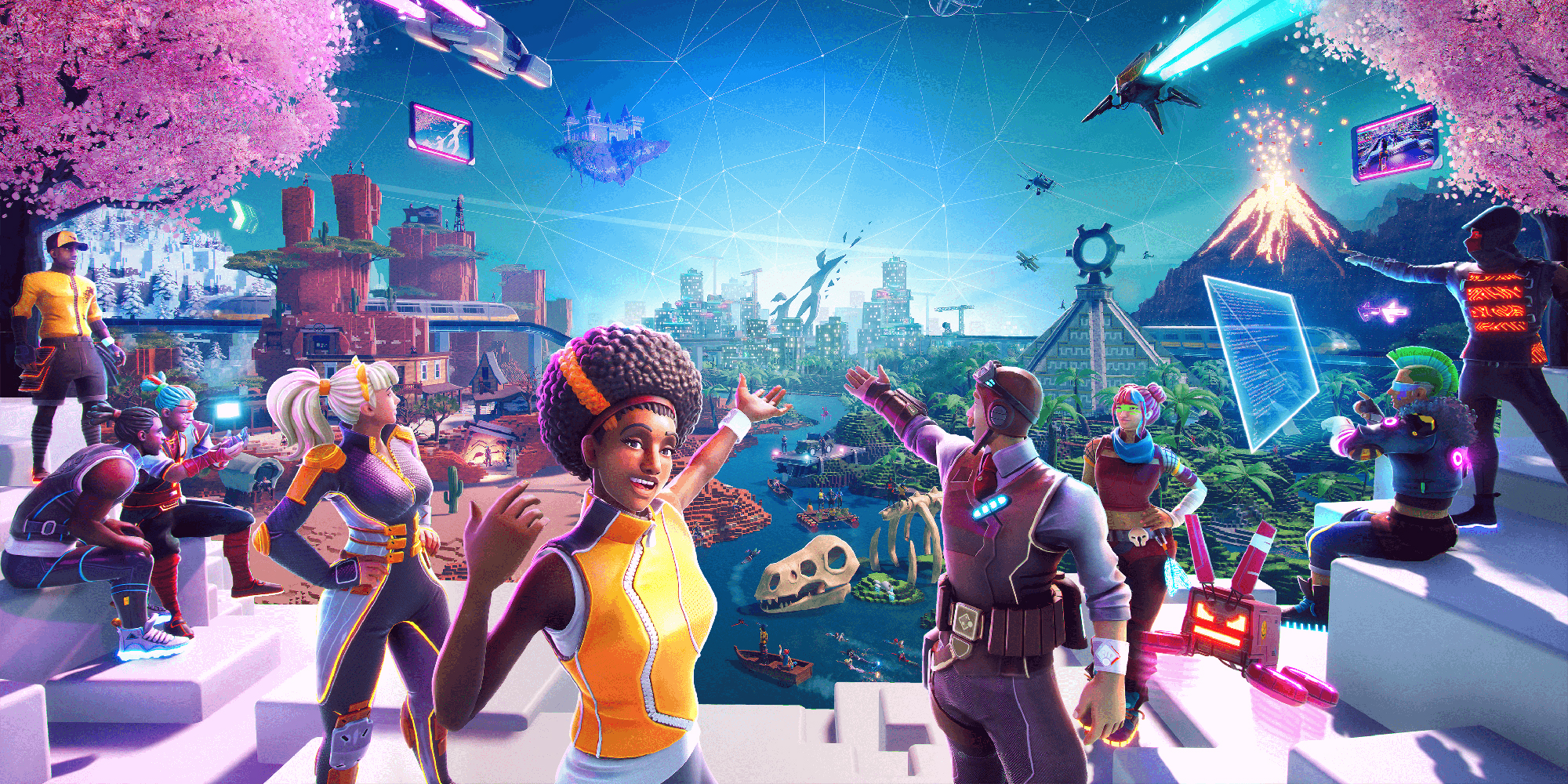
The world of metaverse games is vast and constantly evolving, offering experiences far beyond traditional gaming paradigms. These games are recognized by several defining features that set them apart:
Persistent worlds. Unlike other games that start afresh with each play, metaverse games are perpetual. Every action, event, or change remains in the world, creating a dynamic history and influencing future gameplay. This continuous nature ensures players find something new and impactful when logging in.
Economic ecosystem. Metaverse games often emulate real-world economies. Players can buy, sell, and trade virtual items using in-game currencies, some of which can be exchanged for real-world money. The rise of blockchain technology and NFTs has cemented these games as legitimate economic platforms.
Cross-game interoperability. In the metaverse, boundaries between individual games become fluid. An asset or character acquired in one game might be usable in another, offering players unique cross-over experiences and expanding gameplay possibilities.
User-generated content. The metaverse thrives on player contributions. Gamers are no longer just consumers; they're creators. They can design buildings, craft stories, shape landscapes, and even code new game mechanics, enriching the shared universe.
Social interaction. These games serve as digital social hubs. Beyond just playing, users can meet friends, attend concerts, participate in events, network professionally, and more, all within a virtual space.
High customizability. Every player can leave a unique mark on the metaverse. Players can design their avatars, personal spaces, or gameplay experiences through extensive customization options to reflect their individuality.
Immersive realism. Leveraging AR and VR, metaverse games offer immersive experiences. Players can feel part of a parallel universe, intensifying emotional connections and engagement.
Adaptive narratives. The storyline in many metaverse games isn't fixed. Instead, it evolves based on collective player decisions, ensuring a dynamic and ever-changing narrative landscape.
Together, these features promise a gaming environment that's entertaining and rich in social, economic, and creative opportunities, shaping a future where the distinction between the virtual and real becomes increasingly blurred.
Applications Of Metaverse In Virtual Gaming
The advent of the gaming in metaverse can revolutionize various aspects of virtual gaming. Unlike traditional AR and VR technologies, the Metaverse, which replicates real-world environments, offers a more accessible platform that does not require specialized equipment.
The impact of Metaverse application cases on gaming is substantial, influencing the following areas:
Interacting and building relationships
In the metaverse, users engage with the world in ways that foster connections. Multiplayer gaming takes on new dimensions, enabling communication with other users, connecting with real-world friends, and forming relationships.
Monetization opportunities
Users can engage in profitable activities within the metaverse, such as participating in crypto games and trading virtual items earned in-game with fellow gamers.
Flexibility in gaming environment
The metaverse offers a highly adaptable gaming environment. Players can add new players, create content, establish subgames within a league, and utilize gameplay experiences as platforms for other virtual gaming tasks.
Asset portability
Asset portability is seamless in the metaverse due to its extensible design. Users can transfer equipment or avatar upgrades acquired in one game to another, with ownership governed by NFT regulations.
Immersive experiences
Leveraging MR and AR technologies, the Metaverse provides users with immersive experiences. Mixed reality functionalities allow seamless transitions from augmented reality messaging to mixed reality games, culminating in full virtual reality experiences within the metaverse.
Technologies Powering Up Metaverse Gaming
The metaverse is no less than an intricate patchwork of various cutting-edge technologies seamlessly blended to create immersive and persistent digital realms. As for games, the set of tools must be robust and powerful to ensure the seamless operations of the gaming product you want to release. Here are the main types of technologies you need for metaverse games.
Game engines. The foundation of any metaverse game rests on powerful game engines. Unity and Unreal Engine are at the forefront, enabling the development of rich, interactive, and scalable virtual worlds. These engines support cross-platform development and can render high-quality graphics, essential for an immersive metaverse experience.
Blockchain & NFTs. Blockchain technology secures digital ownership in the metaverse. Non-fungible tokens (NFTs) provide a way to establish unique digital assets, from in-game items to virtual real estate. Platforms like Ethereum are the backbone for many NFT marketplaces and metaverse games.
Virtual reality (VR) & augmented reality (AR). VR headsets like Oculus Rift or HTC Vive plunge players into the metaverse, ensuring a full-body immersive experience. Meanwhile, AR technologies overlay digital objects onto the real world, creating a blend of realities.
Server infrastructure & cloud computing. Robust server infrastructures are crucial to support vast, persistent online worlds. Cloud computing platforms, such as AWS and Google Cloud, offer scalable solutions to accommodate the growing number of metaverse users.
AI and machine learning. AI powers the NPCs (Non-Player Characters) and other dynamic elements in the metaverse, ensuring they react realistically to player actions. Machine learning can analyze user behavior, customizing the experience to individual preferences.
Spatial audio & 3D soundscapes. Sound plays a pivotal role in immersion. Technologies like Dolby Atmos or Sony's Tempest 3D AudioTech enable the creation of three-dimensional soundscapes, making virtual interactions even more lifelike.
As the metaverse continues to evolve, it's undeniable that the fusion of these technologies will only become more sophisticated, offering more affluent and more interactive experiences for users worldwide. With Game-Ace, you have ensured the utilization of these top-notch technologies, guaranteeing a game that stands out in the expansive metaverse.
The Best Metaverse Games That Deserve Attention
As the metaverse gains traction, several games have distinguished themselves as pioneers in this groundbreaking market. Here's an expanded look at these trailblazers:
Decentraland
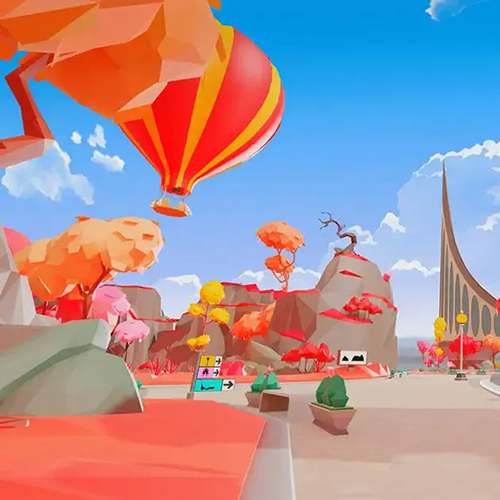
Founded: 2020
DAU: ~8000
One of the early adopters of the metaverse concept, Decentraland is a decentralized virtual reality platform powered by the Ethereum blockchain. Players can purchase land in this universe using MANA, Decentraland’s native cryptocurrency. Once they own a parcel of land, they can develop it however they see fit.
The Sandbox
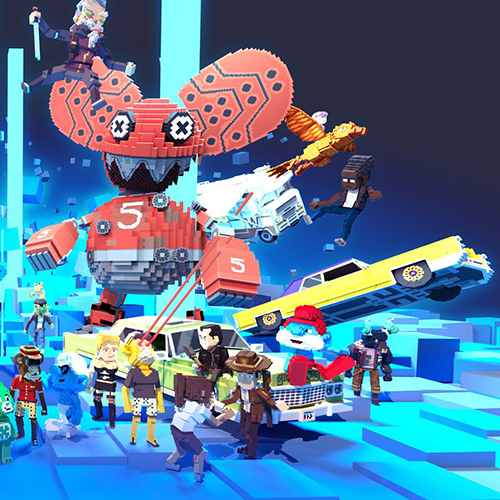
Founded: 2012
DAU: ~39,000
Rooted in the principles of blockchain, The Sandbox employs a voxel aesthetic akin to Minecraft. Its uniqueness lies in the tools it provides to users to craft, play, and even monetize their creations. Players can own and trade assets through its integration with NFTs, giving tangible value to their in-game items and land plots.
Roblox

Founded: 2006
DAU: ~65,5 million
Roblox is not just a game but an expansive platform and universe. Its developer-friendly tools have cultivated a massive community that has produced millions of games. It also boasts its economy with the Robux currency, enabling creators to earn from their designs.
CryptoVoxels
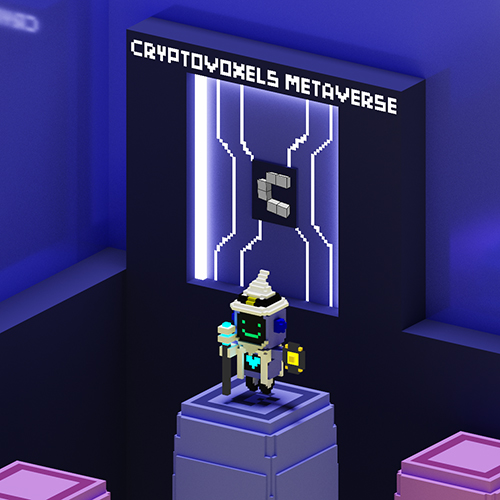
Founded: 2018
DAU: N/A
A more recent entrant to the metaverse scene, CryptoVoxels is a virtual world driven by the Ethereum blockchain. What sets it apart is its vibrant emphasis on art and culture. Players can purchase plots of land to showcase their digital artworks, making it a bustling hub for virtual art galleries and exhibitions.
Somnium Space
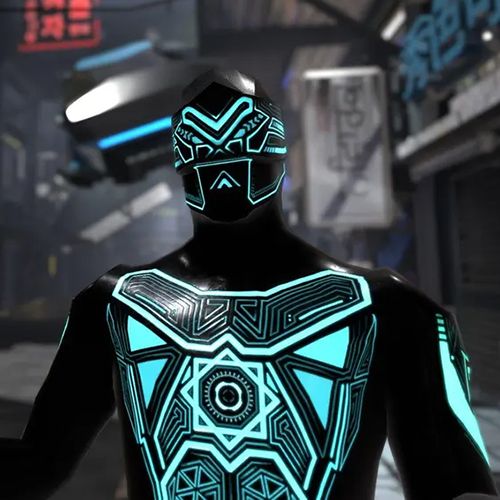
Founded: 2020
DAU: ~N/A
Designed as a continuous, single-instance world, Somnium Space offers a deeper dive into virtual reality. Its landscapes, real-time events, and multi-modal communication (voice, text) ensure a richly immersive VR experience. Real estate is tokenized, allowing the buying, selling, and building of virtual land.
These games highlight the vanguard of metaverse innovations. Each offers a unique twist on virtual world-building, digital economics, and user interactivity, setting the standard for future metaverse experiences.
Benefits of Metaverse Game Development
Developing games for the metaverse presents many advantages that can revolutionize the gaming in metaverse landscape and unlock fresh player opportunities. Below are several notable benefits of metaverse game development:
Immersive gameplay
Metaverse games offer immersive and interactive experiences, allowing players to explore expansive virtual worlds, interact with others in real time, and engage in diverse activities, enhancing the overall gaming experience.
Social connectivity
These games promote social interaction by enabling players to form communities, join guilds, and participate in group activities, fostering a sense of camaraderie and belonging within the virtual environment.
Creator empowerment
Metaverse games provide creators with opportunities to unleash their creativity by designing virtual spaces, customizing avatars, and developing unique gameplay experiences, allowing players to contribute to the metaverse ecosystem actively.
Real-world integration
Metaverse games can seamlessly integrate with the real world through partnerships with brands, virtual events, and applications in various sectors like education and healthcare, bridging the gap between virtual and physical experiences.
Investment potential
With the metaverse gaining traction in the gaming industry, investments in this technology are on the rise. Major tech companies are investing in the metaverse, making it a lucrative option for investors seeking high returns.
While the benefits of integrating the metaverse into gaming are evident, gaming companies may encounter challenges during the development process.
What Are the Challenges of Gaming in the Metaverse?
Developing and implementing gaming in metaverse presents numerous challenges, including:
1. Technical complexity:
- Building a fully operational metaverse involves integrating various cutting-edge technologies, including blockchain for decentralized systems, artificial intelligence for dynamic environments, and virtual reality for immersive experiences.
- Developing these technologies to work harmoniously and ensure their scalability and stability presents significant technical challenges.
- Moreover, creating realistic and interactive virtual worlds requires advanced graphics rendering, physics simulations, and network optimization, adding to the technical complexity.
2. Interoperability:
- Different virtual worlds and gaming platforms may use proprietary technologies and protocols, making it difficult for them to interact seamlessly.
- Establishing common standards and protocols for interoperability is essential to enable cross-platform communication and data sharing.
- Achieving interoperability requires collaboration among developers, standardization bodies, and technology companies to define and implement open protocols that facilitate seamless integration.
3. Security and privacy:
- The metaverse involves extensive user interactions and transactions, raising concerns about data security and privacy.
- Protecting users' personal information, financial data, and digital assets from cyber threats, hacking attempts, and unauthorized access is paramount.
- Implementing robust encryption, authentication mechanisms, and access controls is necessary to safeguard user privacy and ensure secure transactions within the metaverse.
4. Legal and regulatory hurdles:
- The use of virtual currencies, non-fungible tokens (NFTs), and digital assets in the metaverse presents legal and regulatory challenges.
- Issues such as consumer protection, taxation, and intellectual property rights require clear legal frameworks and regulations to address potential conflicts and ensure compliance.
- Governments and regulatory bodies may need to develop new laws and policies tailored to the unique characteristics of the metaverse to protect users' rights and promote fair competition.
5. Inclusivity concerns:
- Accessibility barriers, such as the cost of hardware devices and internet connectivity, may limit the participation of specific user groups in the metaverse.
- Ensuring that the metaverse is accessible to individuals with disabilities and those from diverse socioeconomic backgrounds is essential for promoting inclusivity.
- Efforts to bridge the digital divide and make the metaverse more accessible through affordable hardware options, improved internet infrastructure, and user-friendly interfaces are critical to ensuring equal opportunities for all users.
The Future of Gaming in the Metaverse
Determining the exact impact of the metaverse on the global economy remains a challenge, as it's unclear if it will become a transformative technology. 80% of the global population uses the internet, with 20% of objects already digitized. Daily, around 200 million individuals engage with platforms like Minecraft and Fortnite for gaming, attending concerts, and more.
Gaming takes center stage with the metaverse's immersive capabilities, potentially becoming a significant revenue source. This convergence of gaming and the Metaverse could usher in a new era, blending NFTs, portable assets, advanced immersive gameplay, and earnings.
The metaverse's concept, a collective virtual shared space created by converging virtually enhanced physical reality and persistently shared 3D virtual spaces, promises to redefine the gaming industry's trajectory. But what does the future hold for gaming in the metaverse?
We can expect a seamless blend of multiple online games and platforms where players can jump between games with the same avatar or character. Imagine starting in a game like Decentraland and then teleporting into a race in a different game world without changing platforms.
Future metaverse games will likely see more intricate in-game economies. Powered by blockchain, players could earn real-world income through gaming by selling items, offering services, or even real estate.
With advancements in VR and AR technologies, future metaverse games will offer even more immersive experiences. This isn't limited to just visuals. Haptic feedback systems, like VR gloves, will allow players to "feel" the virtual world.
The metaverse will expand the social dynamics of online games. Players will engage in more collaborative activities, from building virtual businesses to organizing large-scale events.
Beyond entertainment, the metaverse offers potential as an educational tool. Future games might be designed to teach specific skills or to simulate real-world scenarios for training purposes.
As technology and creativity converge, the metaverse's potential remains vast and largely uncharted. One thing is sure: it holds a transformative promise for gaming, blurring lines between virtual worlds and reality like never before.

Tap into Metaverse Gaming with the Help of Game-Ace Experts
Navigating the vast and rapidly evolving landscape of the metaverse and gaming can be daunting. However, with Game-Ace by your side, you gain the assurance of working with professionals deeply rooted in this revolutionary gaming realm.
Since 2005, Game-Ace, a custom game development company, has been at the forefront of game development, ensuring that every project is of premium quality, backed by full-cycle game development, and tailored to clients' unique needs. Our proficiency spans from metaverse game development to metaverse NFT marketplace development services, ensuring your gaming concept is actualized with industry standards and innovations.
Whether you create a metaverse game of any genre or seek expert consultancy on metaverse building, Game-Ace is your one-stop destination for holistic metaverse game solutions.
Ready to shape the future of gaming together? Contact us to initiate cooperation.
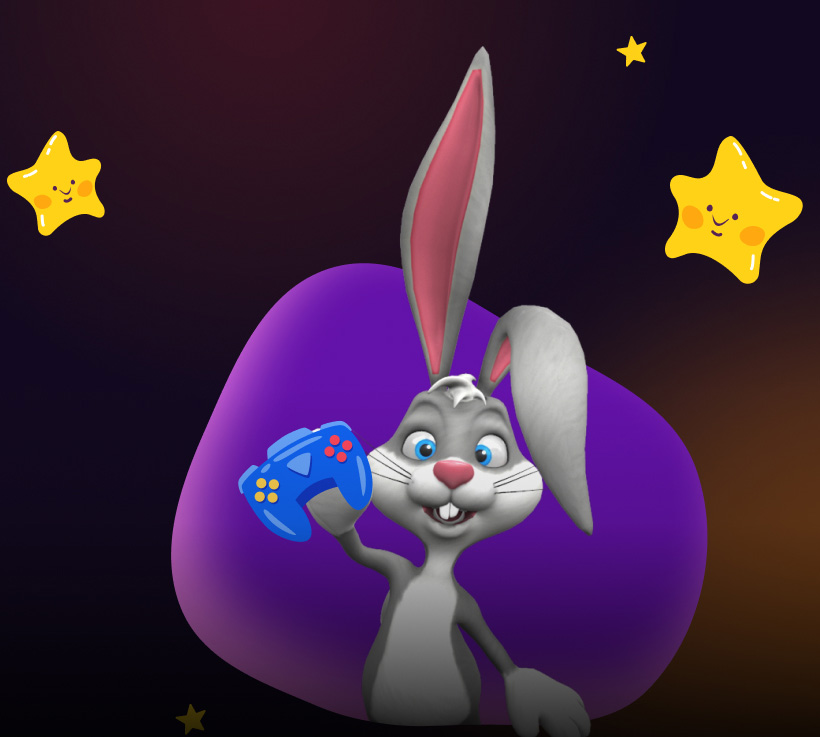 The Role of AR In Games Described and Explained
The Role of AR In Games Described and Explained 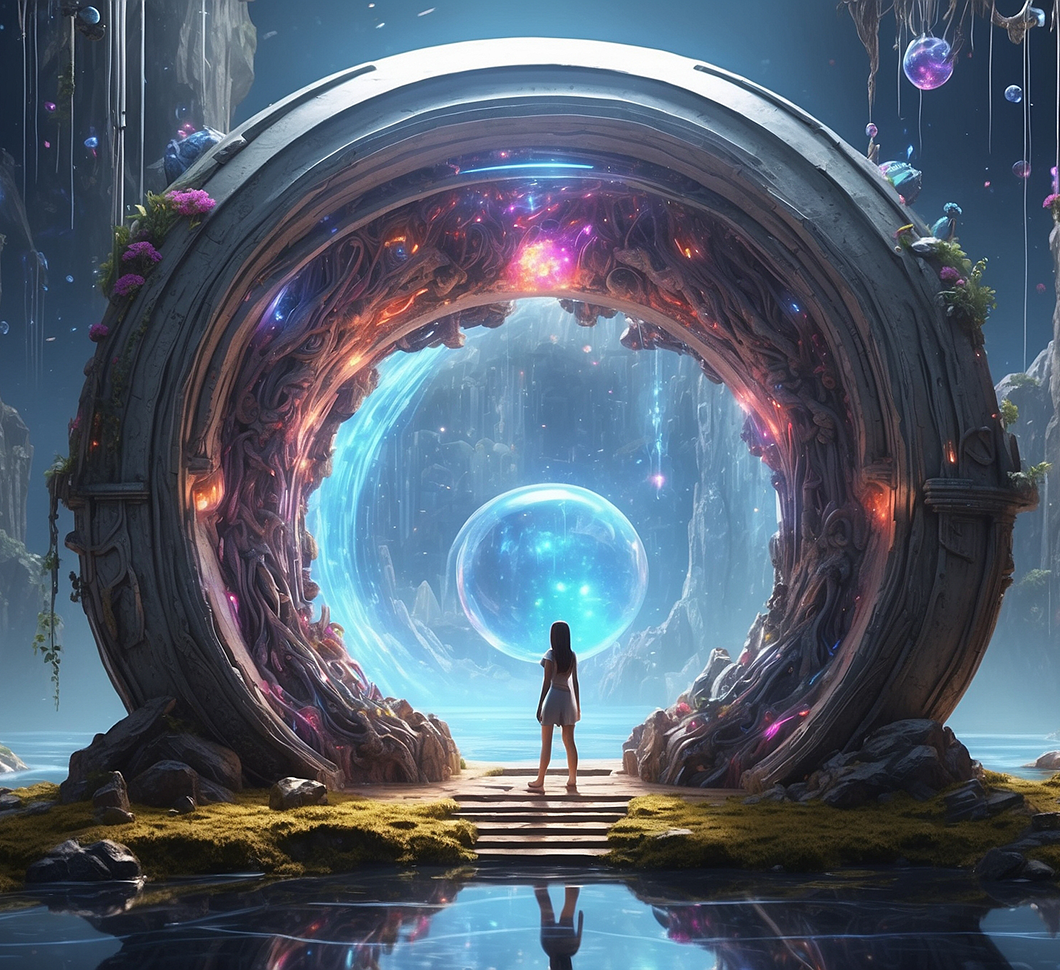 How Much Does It Cost to Make a Video Game in Real-World Conditions?
How Much Does It Cost to Make a Video Game in Real-World Conditions? 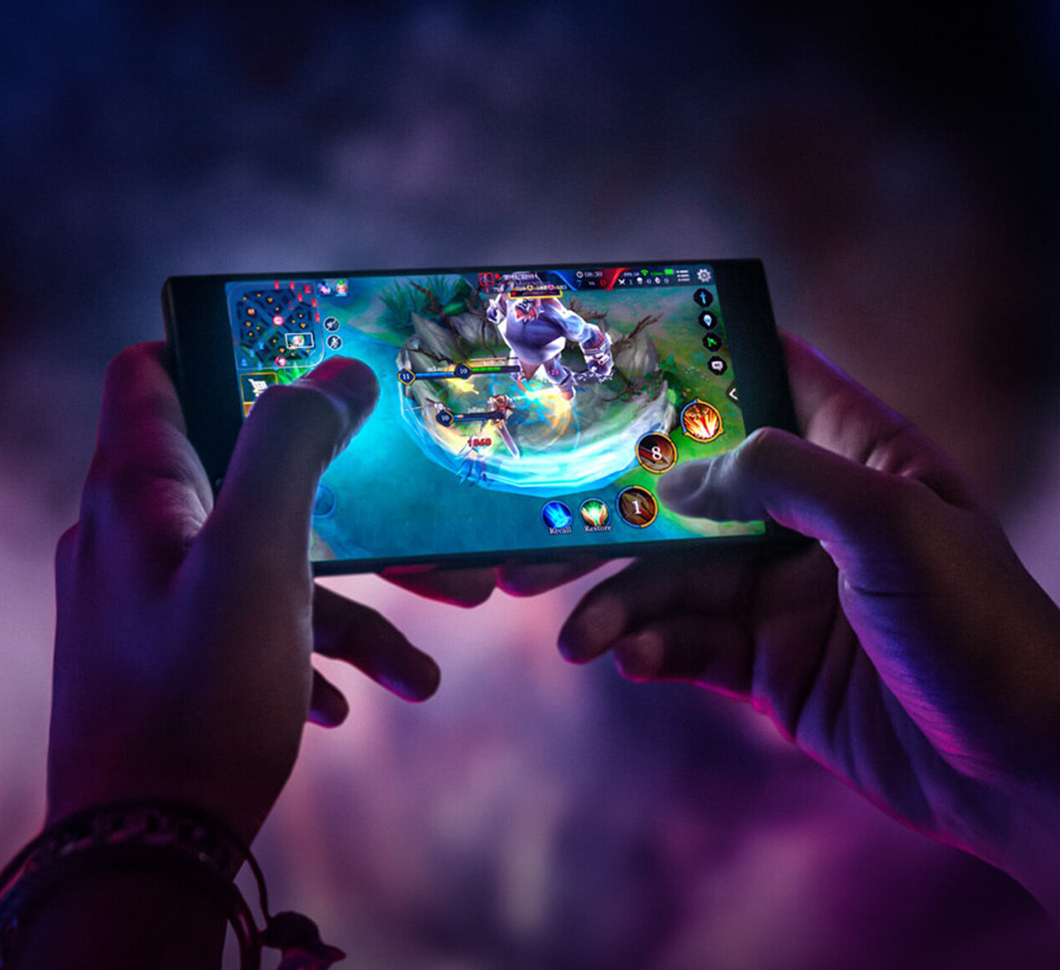 Mobile Gaming Trends 2025: Genres, Technologies, Demographics
Mobile Gaming Trends 2025: Genres, Technologies, Demographics  Will Metaverse Game Development Become the Industry’s Future?
Will Metaverse Game Development Become the Industry’s Future? 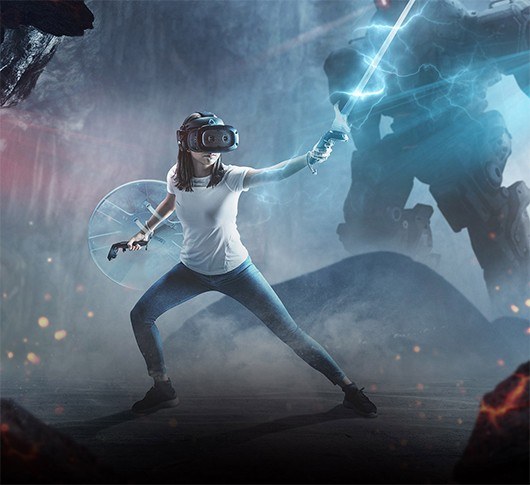 What is The Key to Immersive Game Design?
What is The Key to Immersive Game Design? 








